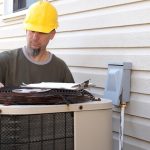Key takeaways
- It is possible to get another mortgage after going through foreclosure.
- You must generally observe a waiting period after foreclosure before receiving another mortgage. Waiting periods vary by loan type.
- Before applying for another mortgage, re-establish your income and focus on improving your credit score.
How long after foreclosure can you buy a house?
Generally, borrowers whose homes have been foreclosed must undergo a waiting period before another institution will lend them money for a new mortgage. For certain types of loans, extenuating circumstances — such as a medical emergency — can shorten the time frame.
Conventional loan: 3-7 years
After a foreclosure, it can take up to seven years to get a conventional loan, one that mortgage market-makers like Fannie Mae or Freddie Mac will buy. However, you may only have to wait three years if the foreclosure was related to circumstances such as a loss of employment or a medical issue, according to Jilyn Crawford, senior loan officer and sales manager at American Family Funding in Santa Clarita, California.
FHA loan: 3 years
You’ll have to wait three years to get a loan backed by the Federal Housing Administration (FHA). The waiting period begins when the foreclosure case ends, generally when the foreclosed home is sold. As with a conventional loan, if you can prove circumstances beyond your control caused the foreclosure, you may be able to request a shorter waiting period.
VA loan: 2 years
For veterans and those still serving in the military, the Department of Veterans Affairs (VA) requires only two years between foreclosure and seeking a new loan. Note that if you qualify for a VA loan, you’ll get a home loan entitlement, which is the maximum amount the VA guarantees it’ll pay the lender in case of default. “I’ve had veterans lose part of their entitlement in a foreclosure, but they still have entitlement left. It’s all about the foreclosed amount,” says Crawford.
USDA loan: 3 years
Available in predominantly rural areas, USDA loans have a waiting period of three years to qualify if you have a foreclosure in your credit history, Crawford says.
Non-qualified mortgage: No wait time
With a non-qualified mortgage (non-QM), or a loan that doesn’t meet government standards, you might be able to get another loan right after your foreclosure, Crawford says. Note that non-QM loans have higher fees, higher interest rates and different eligibility criteria than qualified mortgages (QM).
How to get a mortgage after foreclosure
Despite a foreclosure, you can qualify for a mortgage again, provided you can assure a lender that you’re ready for homeownership:
1. Check your credit report
Get a free copy of your credit report from AnnualCreditReport.com, and look for any delinquent accounts that were sent to a collection agency. If you know these accounts are yours, it’s worth contacting the agency and trying to negotiate a payment plan.
If you find any errors on your credit report, gather supporting documents and file a dispute by mail, phone or online with the applicable credit reporting agency: Experian, Equifax or TransUnion.
A foreclosure stays on your credit report for up to seven years and will lower your credit score significantly, often by as many as 100 points, according to Equifax.
2. Focus on improving your credit score
To buy a house after foreclosure, you’ll need to improve your credit.
Strive to pay every bill on time. Late payments are very hard to get off your credit report, Crawford says. Most creditors will give you a one-time goodwill adjustment, so you can try asking for it if late payments aren’t a regular habit. If possible, set up your bills on automatic payment to avoid forgetting to pay them.
If you have any credit cards, try to pay more than the minimum balance due, as well. If you can’t afford the minimum due to a temporary hardship, reach out to the creditor and request a payment arrangement.
3. Re-establish income
Lenders generally like to see consistency in employment and income. If you lost your job, make it a priority to find another one.
Note that your new employer may review your credit report containing information about the foreclosure. In most cases, this shouldn’t impact your prospects — though it may if you’re a candidate for a role that deals directly with money. In all cases, it’s best to be honest about how you’re taking steps to move past your past credit mishaps.
4. Save if you can
To qualify for another mortgage after foreclosure, you’ll need to prove to a lender that you can repay the loan should an emergency arise.
This can be hard, Crawford says, but if you can, cut back on little things like restaurant meals. You can also look for other ways to save, such as changing your auto insurance or cell phone plan or dropping your cable television or streaming subscription.
5. Find a lender based on your needs and situation
As you figure out how to buy a house after foreclosure, a new lender can be an ally. Seek out a lender familiar with your situation or one with several programs to choose from that can fit what you need, Crawford recommends. For instance, if you’re looking for a VA loan, go for a lender who specializes in them.
“All lenders are fishing in the same pond,” says Crawford. “The difference is in the loan officer and the knowledge that officer has.”
It’s also a good idea to read customer reviews for the mortgage lenders you’re considering. This can help you learn more about the experience and quality of service you can expect.
What to consider before buying a home after foreclosure
Before buying another home after foreclosure, check in with yourself and your finances. Do you feel ready to take on the responsibility of homeownership again? Think about the costs that come with owning a home, such as repairs and upkeep, in addition to the monthly mortgage payment. And consider the circumstances that led to the loss of your old home. Are they likely to recur?
Finally, assess the real estate scene in your area. “You need to examine what the market looks like at that time and will a lender work with you,” says Crawford.
There are undeniable advantages to owning a home. But sometimes, renting for a little longer can help you repair your credit, pay down your debt and build up your assets. And all of those things will make homebuying after foreclosure a lot less stressful when you are ready.
FAQ
Read the full article here















